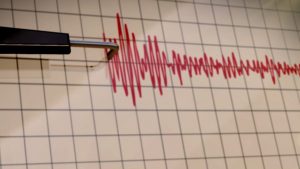Rome – Against a backdrop of new reports that show the number of refugees entering Europe has continued to skyrocket, senior government officials attending the final day of the International Fund for Agricultural Development’s 39th Governing Council, renewed their commitment to invest in smallholder agriculture and reduce poverty in developing countries.
Recognizing that rural development plays a fundamental role in stabilizing communities and reducing migration and conflict, IFAD President Kanayo F. Nwanze told leaders that “by working together to deliver on the Sustainable Development Goals (SDGs) – starting with zero poverty and zero hunger – we can break the chain of desperation” that leads to emergencies and humanitarian disaster.
Urgent calls for action in support of increased investment in smallholder agricultural to ensure food security, climate change adaptation, equitable prosperity and ultimately to remove the root causes that lead to conflict and migration, were shared throughout the two-day conference, held annually in Rome for senior government officials representing IFAD’s 176 member states.
Sergio Mattarella, the President of the Italian Republic, pledged that Italy will continue to play a key role in the eradication of hunger and poverty – conditions he described as “insidious”.
Mattarella brought attention to the increasing number of refugees fleeing the conflict in Syria and called on leaders of all nations to get involved. “Saving human lives and reaching out to those fleeing war or misery is a moral duty, a duty for any society that defines itself as free, democratic and truly respectful of human rights,” he said.
Dr Mohamed Ibrahim, globally recognized entrepreneur and founder of the Mo Ibrahim Foundation, delivered this year’s IFAD Lecture. Ibrahim took African governments to task for not living up to their commitments to invest in agriculture and rural development. He said it is essential that they create opportunities for young people in agriculture so that they are able to resist the dangerous call of extremism.
“No jobs, no hope,” he said, adding that Africa has more hungry, malnourished people than anywhere else in the world. “We are by far the least productive region in the agriculture sector but because we have more uncultivated, arable land than anywhere else, it presents opportunities.”
A private-sector panel which included Sunny Verghese, Cofounder and Group CEO of Olam International, highlighted the need for bold initiatives to better link smallholder farmers to markets. Panel participants emphasized that everyone – government, the private sector, financing institutions such as IFAD, small- and medium-sized enterprises and smallholders farmers – have a role to play.
A second panel discussion, facilitated IFAD Associate Vice President Périn Saint Ange, focussed on innovative agricultural solutions to many of the global challenges discussed over the two days, including IFAD investments in farming technologies, approaches to empower women and youth, and the use of new technology to enhance rural development project design and management.
In a one-on-one conversation ahead of the panel, Dr Ismahane Elouafi, Director General of the International Centre for Biosaline Agriculture, said that the world is at a crossroad in terms of its overuse of natural resources, and that the Middle East and North Africa region already has some of the highest water scarcity in the world.
“Climate change impacts the poor and marginalized most of all,” she said. “We have huge challenges ahead, and we need to act now.”
Among the outcomes from the Farmers’ Forum, a two-day meeting held in conjunction with IFAD’s Governing Council, organizers announced a plan to make the platform for dialogue more inclusive, inviting pastoralists and livestock breeders to take part, and more decentralized creating stronger links to smallholders and family farmers on the ground.
(IFAD invests in rural people, empowering them to reduce poverty, increase food security, improve nutrition and strengthen resilience. Since 1978, we have provided US$17.6 billion in grants and low-interest loans to projects that have reached about 459 million people. IFAD is an international financial institution and a specialized United Nations agency based in Rome – the UN’s food and agriculture hub.) – IFAD press release



